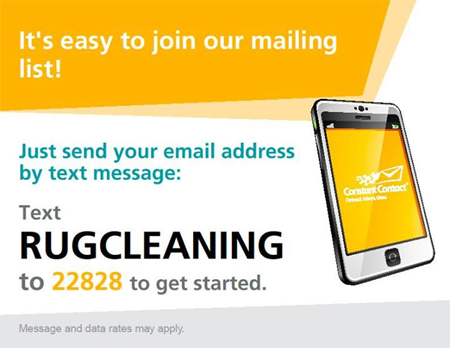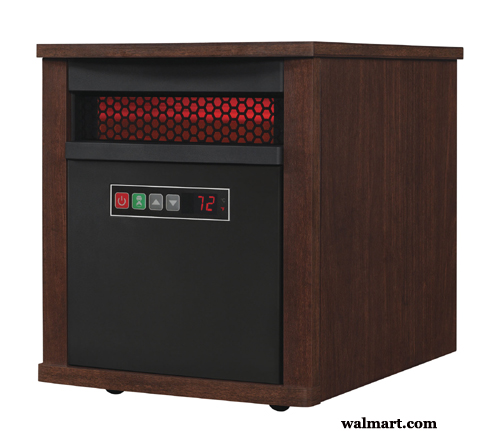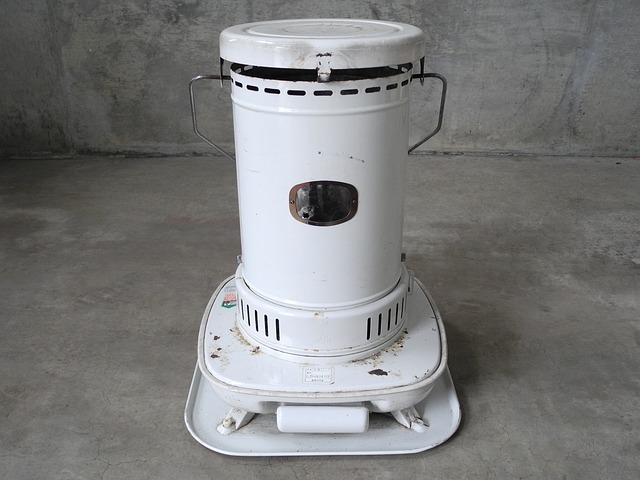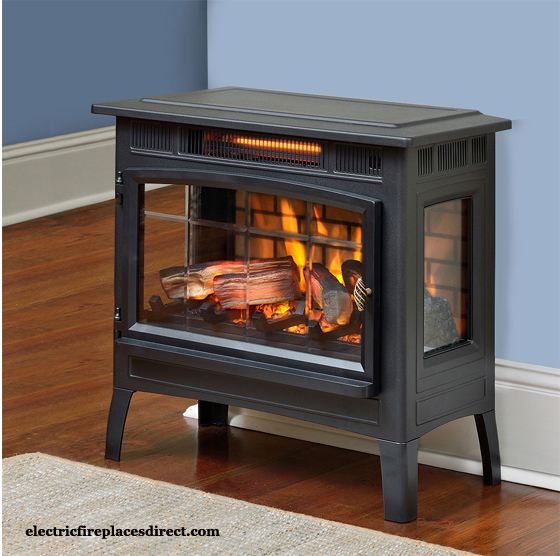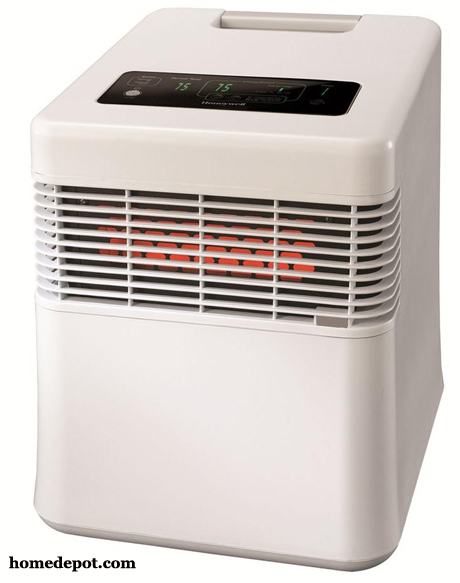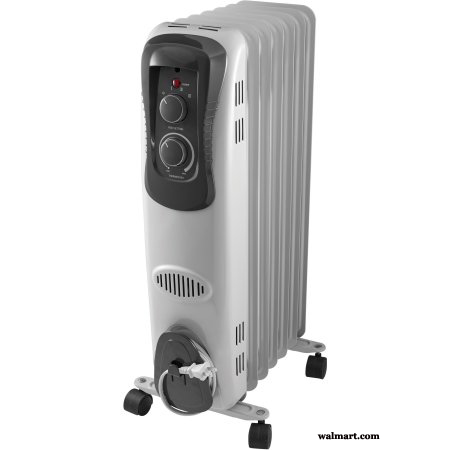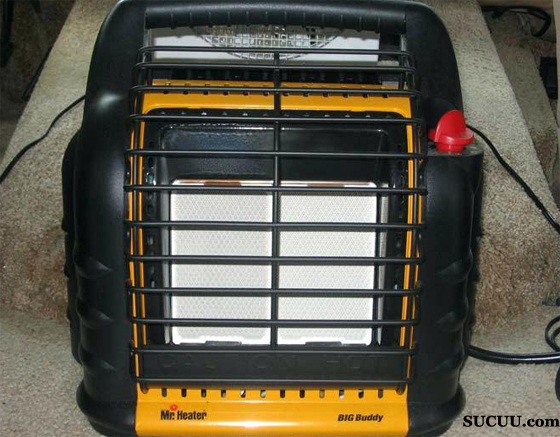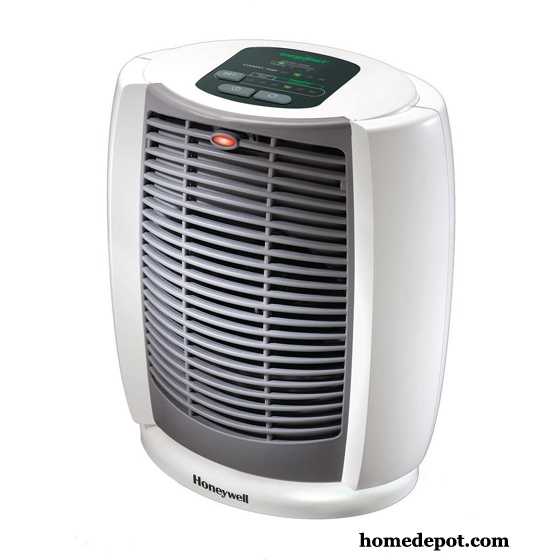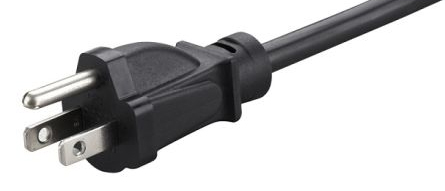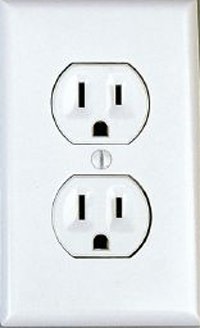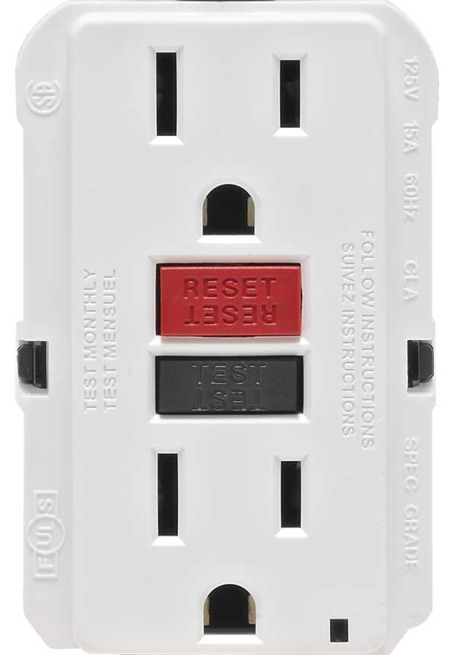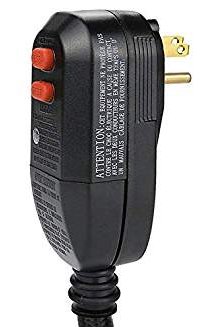PORTABLE HEATERS
Portable heaters may become a possible purchase option for those of us going through the ravages of a long, cold winter. Especially in sub-zero temperatures, we may need to boost the comfort level of our regular heating system to keep warm and snug in our homes. Fireplaces and electric blankets may help but may not be enough.
Portable heaters can actually be less expensive to use, especially when the heat in only one room needs to be supplemented. When older persons or those sensitive to the cold are living in a home, it can actually be more economical to raise the heat in just one area without overheating the entire home.
PORTABLE HEATERS
SAFETY CONCERNS
There are important safety concerns that come with the use of portable heaters in the home. Accidental fires and burns, as well as electrical shock injuries from these devices are reported annually.
In fact, according to the U.S. Consumer Product Safety Commission, more than 25,000 residential fires a year are associated with the use of portable heaters, resulting in more than 300 deaths. More than 6,000 burn injuries come just from contact with the hot surfaces of some of these heaters.
TYPES OF PORTABLE HEATERS
Portable heaters are typically vented or unvented. Vented ones are really not portable since they must be on an outside wall and vented through the wall or the ceiling or they are sealed combustion units which have a duct to bring outside air into the combustion chamber rather than using the inside air for combustion.
Unvented portable heaters can be combustion units, such as kerosene and natural gas heaters, which use the inside air for combustion, or they can be electric.
Unvented combustion units should never be used inside homes because they deplete the air and bring combustion products into the home, such as nitrogen oxides, carbon monoxide, and water vapor.
Thus, for the purpose of this article, we will be talking about the use of electric portable heaters in the home. Although there is no concern with indoor air quality as with combustion units, they should be used with caution since they still pose fire, burn, and electrical shock hazards.
ELECTRIC PORTABLE HEATERS
What do you know about electric portable heaters? Today, they come in many different sizes and shapes, some of them are even made to look like small fireplaces.
Most electric portable heaters work by convection, which is the circulation of air in the room, while others use radiant heating. These emit infrared radiation, which heats people and and objects directly and may be a more efficient choice for short-time use.
For convection (non-radiant) portable heaters, the best types incorporate a heat transfer liquid, such as oil, that is heated by the electric element. The heat transfer fluid provides some heat storage, allowing the heater to cycle less and to provide a more constant heat source.
When shopping for portable heaters, it is important to consider how and where the heater will be used to help determine the size, shape and other options related to portable heater safety.
PORTABLE HEATERS SAFETY TIPS
MEASURE THE AREA
Measure
the area you wish to heat and make sure the device you purchase is
sufficient for the space. An overworked heater can quickly become
dangerous. And one that is too large for a room can overheat the room
and be uncomfortable. Fortunately, most heaters have a general sizing
table.
CHECK FOR CERTIFICATION
Make sure the electric heater has testing laboratory certifications such as UL (Underwriters Laboratories), CSA (Canadian Standards Association), or ETL (Intertek Group). It would be best to purchase newer models that would most likely have all the current safety features.
SIZE & SHAPE
Consider the size and shape of the heater. Lower-profile heaters are more difficult to tip over. Some are shaped like a tower and can be easily tipped. Avoid these.
READ LABELS & INSTRUCTIONS
Always read the manufacturer's instructions and warning labels carefully.
PLACEMENT
Place the heater on a hard, level, non-flammable surface away from foot traffic and doorways. These heaters are never intended to sit on a table.
THERMOSTATIC CONTROLS
Choose a thermostatically controlled heater because they avoid the energy waste of overheating a room.
AUTOMATIC TURNOFF
While all electric heaters should have an automatic turnoff mechanism if tipped over, ensure yours has one.
Make it a priority to always turn off the heater when the room is not being used or when you go to bed. However, heaters with programmable timers for on/off times can also be purchased.
OUTER GRILLE OR SPECIAL HOUSING
If you have children or pets, an outer grille safety feature should be mandatory. You don't want accidental contact burns to occur. Never put a portable heater in small child's room.
Some
heaters come with a cool-touch housing. Ceramic heaters provide an
extra layer of safety, as the ceramic self-regulates its temperature,
reducing the temperature as resistance increases.
Room heaters with overheat protection switches function in nearly the same manner. They use a temperature sensor, detecting when internal components become too hot. When an unsafe temperature is detected, the switch automatically shut off the unit to prevent overheating.
PLUG IN SAFETY FOR ELECTRIC PORTABLE HEATERS
Always make sure to plug an electric heater into a three-prong outlet that is grounded.
Most heaters don't come equipped with a GFCI (Ground Fault Circuit Interrupter) plug, which is a type of circuit breaker which shuts off electric power when it senses an imbalance between the outgoing and incoming current and can prevent electric shock. Heaters without one should not be used around water.
DO NOT use extension cords since they can overheat, causing a fire. If an extension cord is absolutely necessary use the shortest possible heavy-duty cord of 14-gauge wire or larger and always check and follow any manufacturer's instructions pertaining to the use of extension cords.
Do not plug another electrical device or an extension cord into the same outlet as a heater. That can cause overheating.
Unplug the heater when it is not in use by pulling the plug straight from the outlet.
Check the cord for damage periodically, and do not use if it is frayed or worn.
REMOVE FLAMMABLE MATERIALS
Common sense dictates keeping any flammable materials at least 3 feet away from the heater, such as furnishing, draperies, etc. Never use any heater in a workshop or garage near paint, gas cans, or matches.
KEEP HEATERS AWAY FROM WATER
Unless a heater is specifically designed for use in damp spaces, refrain from running a heater in a bathroom or a humid basement. Most important, do not touch the heater if you are wet or have wet hands as this increases the risk of electrical shock. (Heaters with a GFCI (Ground Fault Circuit Interceptor) plug are safe for use in bathrooms.)
COOL DOWN AFTER TURNING OFF
After you turn the heater off, give it plenty of time to cool down before touching or moving it.
REGULAR INSPECTION AND MAINTENANCE
Occasionally inspect your portable heater, particularly when you first purchase it. Frequently clean and maintain it to ensure it is working safely. Wiping it down will also help to reduce the amount of dust and allergens that may be dispersed around the area.
GENERAL PRECAUTIONS
Install working smoke alarms on every level of your home and in every bedroom and test them monthly.
Portable heaters are only meant to provide supplemental heat and should never be used to warm bedding, cook food, dry clothing or thaw pipes.
Make sure to show everyone in your home how to use an electric portable heater properly.
NEED MORE INFO?
We hope the information we have provided will help you to feel more secure about purchasing a portable electric heater and using it safely in your home. Of course, accidents can happen, but if anything does happen such as a fire or smoke damage, please get some professional remediation help. At ABC, we no longer provide fire and smoke damage remediation, but we can certainly answer any questions you might have.
We are open from 8 to 5 Monday through Thursday, closing on Fridays at 4:30pm. We are also open from 10 to 1 every Saturday. Our phone number is 607-272-1566. You can also contact us at info@abcclean.com or visit our website at ABCclean.com.
"The Cleanest Clean You've Ever Seen."
by
ABC Oriental Rug & Carpet Cleaning Co.
130 Cecil Malone Drive Ithaca, NY 14850
607-272-1566

ABC
Carpet & Rug
Spotting Guide
GIVE THE
GIFT OF CLEAN!

Why not think 'outside the box' and give
a Gift Certificate for professional carpet, upholstery, or tile
& grout cleaning from ABC for any special occasion!
Does a special person have a favorite area rug or oriental rug that needs cleaning or repair? Just give us a call. You'll make their day!
Bring in the mats from a car and we'll clean them as well.
Contact
us if you live in the Ithaca, NY or surrounding areas and we will
tailor a special gift certificate just for you for any Special Occasion.
We would love to send our monthly newsletter directly to YOUR INBOX.
Just sign up below...
(Your email is safe with us. Your privacy is our priority.)
Viewing Us on Mobile?
Text to Join Below...
